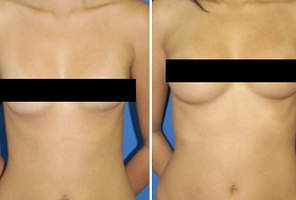We have all heard of collagen. Many cosmetic surgery techniques involve the use of collagen to improve the look and feel of our skin. While these procedures are helpful and can provide dramatic results, you may not be aware that the foods you eat can also influence this important substance.
What is Collagen?
Collagen is a type of protein. It is one of the most abundant proteins in our body, making up about 25% of the total proteins. There are more than 25 kinds of collagens present in our body, and these are found both inside and outside of our cells, making collagen unique among proteins. Collagen can be thought of as the “glue†that holds us together.
Why do we need Collagen?
Collagen works together with elastin to provide firmness and strength to our tissues, and with keratin to give us strength, resilience and flexibility in our skin. As aging inevitably takes its toll, the collagen in our body begins to deteriorate, leading to wrinkles and loose, sagging skin. Those of us who worship the sun will find that this process is even further accelerated. As mentioned, cosmetic procedures can supply collagen to our skin in the form of dermal fillers and other methods, improving the appearance of fine lines and wrinkles, but we can also boost the collagen in our body through the things that we eat.
Which foods support and replenish Collagen?
There are several foods that we can eat that can help to improve the appearance of our skin by helping to replenish collagen and support its function in our bodies:
- Protein- Collagen is a protein; therefore, it makes perfect sense that eating protein-rich foods can help boost collagen production. Protein gives our cells the ability to repair themselves, and is especially important to our skin cells, which are constantly being sloughed and replaced.
Good sources of protein include meat, milk and milk products, eggs, tofu, and fish.
- Vitamin A- This important vitamin helps to build collagen fibres and helps the skin to retain moisture. It is also important in the maintenance and repair of skin tissues.
Good sources of vitamin A include fruits and vegetables, such as carrots, cantaloupe, mango and sweet potatoes. It is also found in high concentration in liver.
- Vitamin C- This vitamin is a potent antioxidant, helping to reduce sun damage to the skin, and damage caused by pollution and smoke.
Good sources of vitamin C include berries (the darker the better), broccoli, citrus fruits, cantaloupe, tomatoes, and dark, leafy green vegetables (kale, spinach, collards, asparagus).
- Vitamin E- Vitamin E is also a potent antioxidant, helping to reduce photo damage and wrinkles, and improving skin texture.
Good sources of vitamin E include vegetable oils, nuts, seeds, olives, spinach, and asparagus.
- Zinc- This mineral helps to boost restoration of the skin. It is also important in wound healing.
Good sources of zinc include oysters, crab, lobster, beef, pork, beans, cashews, yogurt, and some fortified cereals.
 Collagen is an important substance in the body, helping to give our skin its texture, elasticity, and strength. Eating a diet rich in protein, vitamins A, C, E, and zinc can help to support collagen production, and help us to achieve and maintain a youthful appearance.
Â

